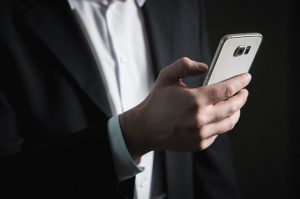Posted in Business Litigation
[et_pb_section bb_built=”1″][et_pb_row][et_pb_column type=”4_4″][et_pb_text]
Emails have made communication far easier and faster than traditional mail. Documents can be attached making it much easier for an attorney or client to read documents and review and approve legal filings. But with this ease comes the problem of the wrong address on an email. The addressee may be auto-filled and the sender more focused on the email’s content than where it’s going. Instead of replying to one person the email may accidently go via “reply all” with a number of people having access to something they shouldn’t see.
While in other contexts this isn’t normally a big deal it can be a big deal if a lawyer is involved in communicating issues that are or may be litigated. The email may contain confidential or privileged information that can’t be un-read or un-learned by the mistaken recipient.
During litigation of a case one party may want copies of communications related to a disputed issue from the other party. One way to legally refuse such a request is by claiming the contents of an email can’t be disclosed because of the attorney-client privilege. They don’t have to be disclosed, because they’re the result of the work of an attorney, communicating with a client. This privilege belongs to the client and he or she can waive it. It exists to encourage individuals to freely communicate with his or her attorney without worrying the information may be revealed.
That privilege can be lost if the communication is read or heard by a third party. Sending a confidential email to a third party would be like loudly talking about the details of a legal strategy or confidential information in the middle of a crowded Starbucks. You wouldn’t expect information in either situation to be private.
The issue isn’t just a ham-fisted attorney sending an email to the wrong person. A client may also make a mistake with addressing an email. He or she may also share it with the wrong person, either because they’re unaware the attorney-client privilege exists, or is aware of the possible protections, but by sending it to another unknowingly ends the privilege.
You could share material that would be considered to be protected by the attorney-client privilege to your employees or board of directors and maintain the privilege, but this should only be on a “need to know” basis and those getting the information need to understand they can’t share it further.
There are many, many rules of evidence and each rule could have several exceptions. The rules of evidence for civil lawsuits fill an entire law school course but even then the professor only scratches the surface. If you think your business may be involved in a legal dispute the attorney-client privilege might be just one of several potential evidentiary issues that may come up. This is why you need the advice of an attorney when running your business so you don’t mistakenly take an action which may make your case less likely to succeed.
If you have any questions about the litigation process or how evidence and communications need to be handled, contact our office so we can talk about your situation, answer your questions and discuss how we can help.
